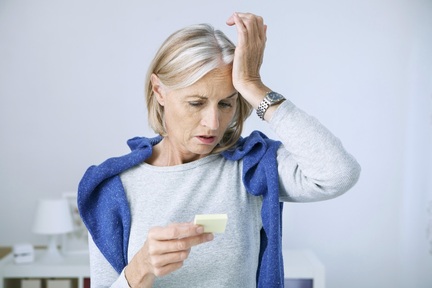GPs admit to lack of support for families struggling with dementia
Surveys carried out by the Alzheimer’s Society show that most GPs do not believe health and social care services are able to do enough to support adults with dementia and their families.
Opinions obtained from 1,000 family doctors show that 77 per cent of GPs think that people with dementia are reliant on family members because they don’t receive enough professional assistance, with 73 per cent believing this also extends to friends, neighbours and unpaid carers.

Other findings include that two-thirds of GPs believe more support services are required immediately after a dementia diagnosis, while 61 per cent point to a lack of cooperation between the NHS and social care services as a crucial factor.
Alzheimer’s Society chief executive, Jeremy Hughes, comments: “Our survey gives a stark view from the doctor's surgery of people with dementia left struggling in the aftermath of a diagnosis. GPs report an endemic and deeply worrying lack of support available from health and social services, with relatives left to pick up the pieces alone.
“People can need a lot of help to live well with dementia. Families and friends are a vital source of support but they mustn't be relied on to do everything. As dementia takes hold, people with dementia and their carers look to statutory services to give them the back-up they desperately need to cope.
“With the number of people with dementia expected to grow to one million by 2021, there is no time to waste. The findings reinforce the urgency of putting in place meaningful care and support for all people with dementia.”
Pressing for a ‘National Plan’ to transform health services for adults with dementia, Alzheimer’s Society has three key recommendations for progress: calling for all hospitals, care homes and home care services to be dementia-friendly; for all adults diagnosed with memory loss to have their own Dementia Advisor; and for unpaid carers to have their own single point of contact to help them make the most of the health and social care system.
Latest News Analysis
 04-Sep-19
Extra £1.5 billion announced for social care in Chancellor's Spending Review
04-Sep-19
Extra £1.5 billion announced for social care in Chancellor's Spending Review
 02-Jul-19
Department of Health forced to rethink care homes' nursing rates after legal challenge
02-Jul-19
Department of Health forced to rethink care homes' nursing rates after legal challenge
 18-Jun-19
Overnight care workers forced to sleep in offices and told 'bring your own bedding'
18-Jun-19
Overnight care workers forced to sleep in offices and told 'bring your own bedding'
 14-Jun-19
Back in the closet: Third of care home staff have had no LGBT+ awareness training
14-Jun-19
Back in the closet: Third of care home staff have had no LGBT+ awareness training
 11-Jun-19
PM candidates on social care: Rory Stewart calls fixing care an 'unfinished revolution'
11-Jun-19
PM candidates on social care: Rory Stewart calls fixing care an 'unfinished revolution'